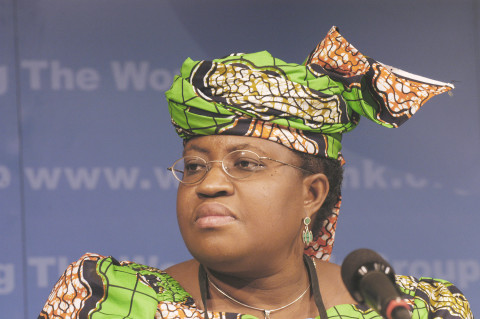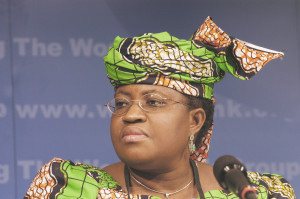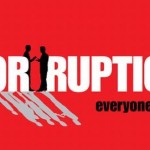Lagos Chamber of Commerce Calls For Improved Budget Implementation in 2014
Business News, Featured, Latest Headlines Thursday, January 2nd, 2014
Kayode Adelowokan, Lagos
The Lagos Chamber of Commerce and Industry (LCCI) has said it hope to see a more responsive budget approval processes and improved implementation of the country’s budget at both states and the Federal Government level.
The President of the Chamber, Remi Bello, frowned at the continued delay in approving FG budget and its poor implementation of capital projects during the presentation of Economic and Business Review for 2013, that the delay remained a major concern for the private sector.
Bello explained that in an economy where government accounts for a major component of expenditure, early passage and proper implementation of budgets are very crucial.
LCCI boss however lauded federal government effort in the ongoing reform in the nation’s agriculture sector.
He said agricultural sector has the largest potential to diversify the country’s economy, create jobs, ensure food security and expand foreign exchange earnings.
He also said in transforming the agricultural sector at this time is compelling, giving the increasing wave of uncertainty in the international and domestic oil and gas market.
Going forward, he said it would like to see an inclusive and integrated agricultural sector transformation with greater trickles down to the bottom of the pyramid within a reasonable time frame.
The chamber boss said, “We encourage the drivers of this initiative to design a strategy to accommodate small farmers who account for over 90% of output and activities in the sector.”
On Oil and Gas, he said that the evolving global energy market dynamics suggest an urgent need to take a sober look at the Nigerian oil and gas subsector in particular and the energy sector in general, especially given the importance of the sector to the Nigerian economy.
The LCCI President added that despite the declining contribution to the nation’s Gross Domestic Product (GDP) – currently at 13% (based on 1990 Prices of GDP computation), the extreme dependence of government finances and external trade balances on proceeds from the sector exposes the nation to significant risks from oil price and production shocks.
In the area of Power the he said that the progress made so far on the power sector reform particularly on the privatisation of the sector but however, said that the power situation has continued to pose even more severe challenges to business operators.
Remi Bello maintained that the chamber is aware that the passage and implementation of the right PIB will not entirely eliminate the problem; but it would expand investment in the sector. Curbing corruption and other forms of fiscal leakages would further stabilize the economy.
Speaking further on developments in the Political Space, he stressed that political stability is critical for the sustenance of investors’ confidence and the progress of the economy, adding that the omens in the outgoing year are not good enough and have created some discomfort among investors.
He therefore appealed to the political class to avoid desperation in their quest for public office as well as play by the rules, adding that it is also critical that the credibility of the electoral process is not compromised.
On performance of the industry in 2013, the Chamber said that GDP growth in 2013 was strong at over 6% and in line with IMF projections and FG’s estimates.
It however said that it concern is the increasing disconnect between the impressive growth numbers, productivity, quality of life and employment, adding that this reality is reflected in the country’s performance in some major global rankings released in 2013.
Bello noted that in 2013, the year on year inflation rate trended at single digit up until October 2013 with an inflation rate of 7.8%.
This he said is very impressive and in line with CBN aspiration of a modest price level in the country.
“We hope that this trend is sustained in 2014 because stability of the price level remains a key factor for doing business. How much the exit of the current governor of the CBN, Mallam Lamido Sanusi come 2014 will affect the prevailing macroeconomic stability in the country remains to be seen.”
On naira exchange rate he said that the chamber is satisfied with the apex bank’s efforts at ensuring exchange rate stability and hope that is sustained in 2014.
He said “Our concern is the continued protection of the exchange rate on the back of high interest rate with the attendant negative outcomes for businesses, output, employment and growth.
“Foreign reserve peaked at $48.2 in August before it moderated to $43.9 billion at the end of 2013. The falling receipt from the nation’s mainstay (oil and gas) is largely responsible for declining level of foreign reserve. We hope to see a more responsive fiscal management and diversification of the economy as a response to the growing fragility in the global oil and gas market.
“Business Confidence Index (BCI), the indicator that measures investment sentiment of business operators in the country moderated to 17% towards the end of 2013. The index had maintained a steady improvement over the first three quarters of the year (10.5% in Q1, 16.5% in Q2 and 24% in Q3). The moderation of the BCI score in Q4-2013 suggests that business leaders are likely going to be softer towards expanding their investments in the early months of 2014.”
He noted that the Small and Medium Enterprises (SMEs) and the manufacturing sector remained the most troubled sector which he said is evidenced by the negative investment sentiments expressed by the operators throughout the year.
He identified infrastructure limitations, unabated influx of imported/substandard products, poor access to credit, high cost of doing business, and the inhibitive activities of government regulatory/monitoring agencies in the country amongst others as disturbing factors affecting their business.
Related Posts
Short URL: https://www.africanexaminer.com/?p=6718























